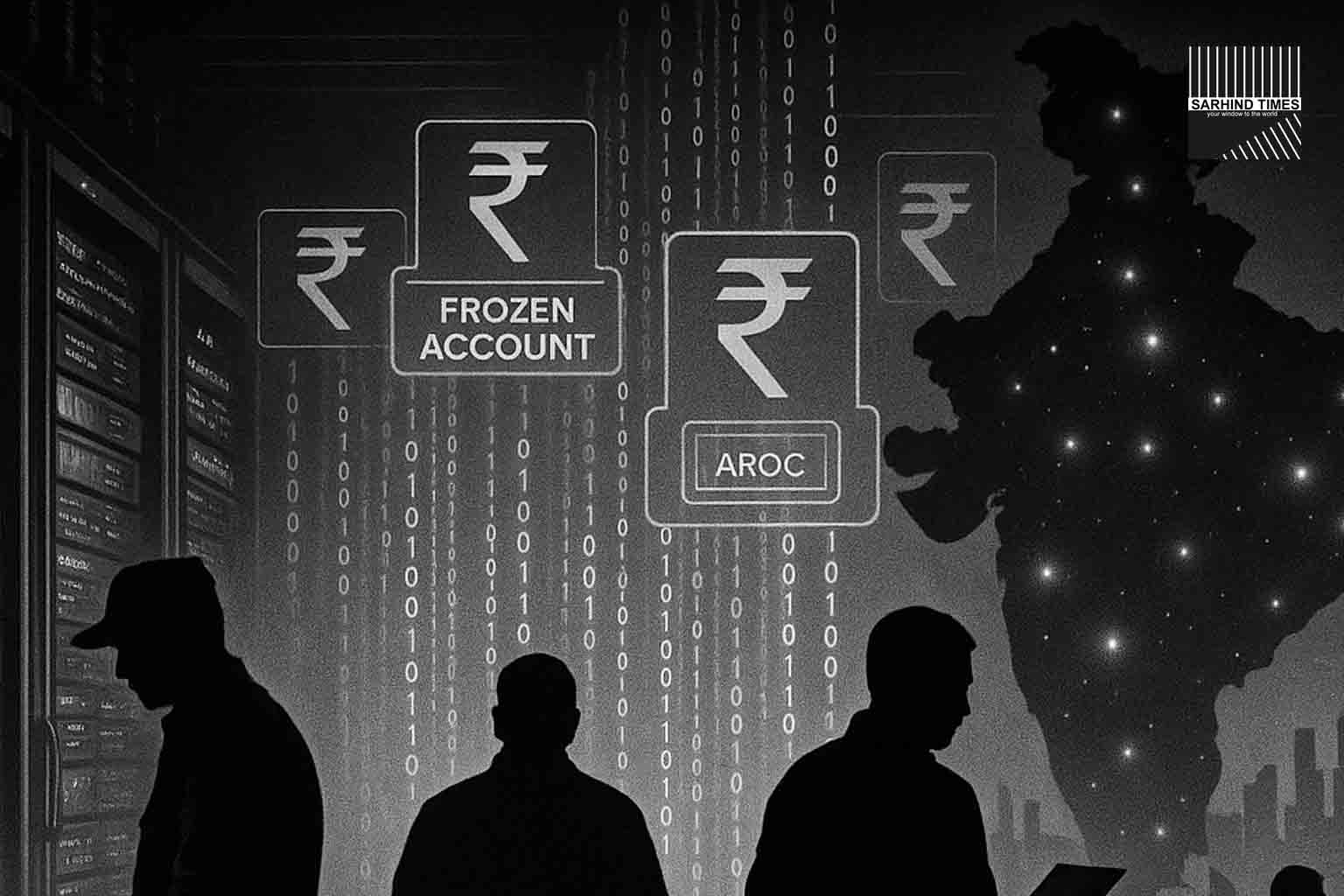By Sarhind Times Investigations Desk
New Delhi, October 3:
In what is being described as one of the largest coordinated actions against financial fraud in India’s history, the Enforcement Directorate (ED) has launched a sweeping nationwide crackdown on cybercrime networks, uncovering a staggering ₹28,000 crore in proceeds of crime (PoC) and seizing assets worth more than ₹8,500 crore.
The operations, carried out across 28+ cities, targeted organised cyber-fraud rackets exploiting phishing scams, app-based loan traps, mule accounts, and cryptocurrency laundering chains.
According to senior ED officials, the crackdown is part of an intensified focus on financial cybercrime, which has emerged as the fastest-growing crime category in India. With digital payments becoming the norm, fraudulent networks have found new ways to exploit loopholes—often transferring illicit funds across borders within minutes.
🚨 How the crackdown unfolded
- Cities covered: Delhi, Mumbai, Bengaluru, Hyderabad, Kolkata, Lucknow, and several Tier-II hubs known for fraud call centres.
- Targets: Suspected operators of phishing syndicates, shell companies, app-loan platforms, and crypto-wallet handlers.
- Methods used: Coordinated raids, forensic recovery of digital devices, freezing of suspicious bank accounts, and interrogation of arrested operatives.
- Early outcomes: Tracing of layered transactions involving thousands of mule accounts and crypto tokens designed to obscure money trails.
An ED spokesperson said:
“This is not just a law-enforcement action but a strategic disruption of a financial crime ecosystem that thrives on exploiting ordinary citizens’ trust in digital systems.”
📊 The numbers: A snapshot of fraud economy
- Proceeds of Crime (PoC) identified: ₹28,000 crore
- Assets seized so far: ₹8,500 crore
- Accounts frozen: Over 12,000 suspected mule accounts flagged across multiple banks.
- Devices seized: More than 400 laptops, 200 mobile phones, and several high-capacity servers.
- Arrests: Dozens of operators and middlemen; further arrests expected.
Cybercrime experts estimate that India’s fraud economy—fuelled by phishing, fake apps, and social engineering—may already rival the narcotics economy in scale.
🧾 Types of fraud under scanner
- Phishing & OTP scams – Fake bank calls, fraudulent SMS alerts, and cloned websites duping thousands daily.
- App-based loan traps – Chinese-origin instant-loan apps charging usurious interest, harassing borrowers, and laundering gains.
- Mule accounts – Individuals paid to open bank accounts used as conduits for layering illicit money.
- Crypto laundering – Conversion of stolen money into crypto tokens, often routed through foreign wallets and exchanges.
- Fintech fraud – Exploiting prepaid instruments and weak KYC to circulate black money.
🏛️ Legal and policy backdrop
The ED’s crackdown comes under the Prevention of Money Laundering Act (PMLA), which empowers the agency to attach properties linked to proceeds of crime.
- PMLA Section 5: Allows provisional attachment of assets.
- PMLA Section 8: Provides for adjudication of seized assets.
- International cooperation: Mutual Legal Assistance Treaties (MLATs) used to seek data from foreign jurisdictions where crypto wallets are based.
Lawyers argue this is a landmark moment:
“India is signalling that cyber fraud is not petty theft—it is organised crime, on par with narco-trafficking and terror finance,” said advocate S. Krishnan, who specialises in financial law.
🕵️ Cybercrime hotspots: The anatomy of fraud hubs
The ED raids also exposed how entire local economies in certain towns depend on scam call centres and mule account operations.
- Jharkhand’s Jamtara: Infamous as India’s phishing capital.
- Rajasthan & UP small towns: Fake loan app syndicates.
- Telangana & Karnataka hubs: Tech-savvy operators running crypto laundering desks.
🌏 The global dimension
Many of these fraud chains are international in nature, involving shell companies in Hong Kong, Singapore, and Dubai. Illicit gains often pass through:
- Hawala networks
- Crypto wallets on unregulated exchanges
- Layered fintech accounts registered under fake or stolen identities
Interpol and Europol have been roped in to trace cross-border flows.
🗣️ Public reaction
Ordinary citizens, long battered by rising online scams, welcomed the crackdown.
- Victim’s voice: “I lost ₹1.2 lakh to a fake courier scam. If ED can trace and freeze such money, it restores hope,” said a Gurugram-based IT professional.
- Banking industry: “This will force fintech players to tighten KYC and AML checks,” noted a senior banker.
- Civil society: “We need parallel consumer education. Enforcement alone cannot stop gullible people from falling prey,” said cyber activist Pooja Thakur.
⚠️ Challenges ahead
- Speed of fraud vs speed of law: Funds are moved across 20 accounts in minutes; freezing takes days.
- Crypto opacity: Decentralised exchanges resist sharing of data.
- Scale: With millions of UPI transactions daily, red-flagging remains difficult.
- Judicial backlog: PMLA adjudication takes months, slowing restitution to victims.
📑 Possible reforms
Experts are calling for:
- Mandatory psychometric KYC for high-risk fintech apps.
- AI-based inter-bank red flagging within seconds.
- Crypto regulation framework to allow law enforcement traceability.
- Consumer education campaigns at scale.
- Dedicated cyber-fraud courts for faster victim compensation.
📰 Conclusion
The ED’s nationwide operation against cybercrime networks is both symbolic and substantive. Symbolic, because it signals the government’s recognition that digital fraud is a national security issue. Substantive, because ₹28,000 crore traced and ₹8,500 crore seized is no small feat.
Yet, as experts warn, cyber fraudsters are adaptive. Unless enforcement is coupled with regulation, technology-driven policing, and mass awareness, India risks fighting an endless battle.
For millions of digital users, this case is not just about numbers—it’s about trust in India’s digital economy.
#ED #Cybercrime #MoneyLaundering #Fintech #Fraud #India























+ There are no comments
Add yours